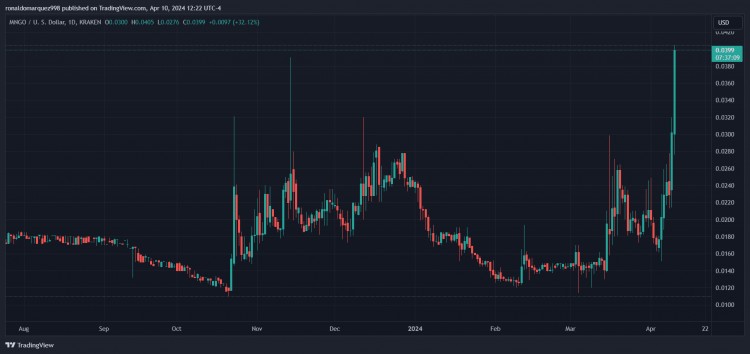Time:2024-04-11 Click:67
In a major development for the cryptocurrency industry, the trial of Avraham Eisenberg, accused of manipulating $100 million at Mango Markets, has begun in a federal court in New York.
Details of the Mango Markets scandal
In his opening statement filed by Assistant U.S. Attorney Tian Huang, Eisenberg’s actions on October 11, 2022, were characterized as fraud and market manipulation.
Huang outlined how Eisenberg inflated the value of the exchange’s MNGO token by 1,000% in just 20 minutes and exploited the platform by convincing Mango Markets that he had vast amounts of capital.
Eisenberg was accused of borrowing more than $110 million in cryptocurrency, and it was later revealed that the funds were stolen rather than a legitimate loan.
Prosecutors further detailed Eisenberg’s alleged efforts to hide his true identity, including disguising himself as a Ukrainian woman and quickly fleeing the country the day after the manipulation took place.
Although Eisenberg offered to return some of the stolen funds, Mango Markets still suffered significant losses. Months later, Eisenberg was arrested and charged with fraud when he returned to the United States.
As the trial got underway on Tuesday, the defense team, led by Eisenberg's attorney Sanford Talkin, argued that Mango Markets and Eisenberg operate in the "speculative realm" of cryptocurrency trading, where the risks and rewards are "significant."
Talkin insisted Eisenberg executed a "successful trade," risked $13 million of his own capital, and operated "within transparent boundaries."
The defense emphasized that every trade has losers and winners, and claimed that executing profitable trades is not inherently illegal.
Taking all of this into account, Mango Markets is seeking $47 million in damages, plus interest calculated from the date of the attack.
The impact of the Eisenberg trial on blockchain technology
The case also raises broader questions about the role of autonomous code and smart contracts in the crypto industry.
Crypto attorney Gabriel Shapiro noted that the final ruling in the Eisenberg case could have far-reaching implications for the industry, potentially challenging the concepts of finality and immutability associated with autonomous code.
In a post on the social media site X (formerly Twitter), Shapiro asked whether retroactive intervention by the Court in the results of an autonomous code would render such a code illegal. In his post, Shapiro said:
“This case is more important to the future of crypto than either SBF or Terra, but everyone seems to be missing the point. Ask yourself: if a court can reverse the results of autonomous code after the fact, is autonomous code inherently illegal? The whole concept is based on finality and immutability…”
As the trial progresses and arguments are presented by both sides, it remains to be seen how the court will rule on Avraham Eisenberg's charges.
The ruling and subsequent discussion will undoubtedly have broad ramifications in the cryptocurrency community, shedding new light on the legal landscape of blockchain technology and its potential impact on the future of the industry.

Following the much-anticipated Mango Markets trial, the platform’s native token MNGO has maintained significant upward momentum, recording 124% year-over-year growth to date.
Furthermore, the coin has exhibited a significant upward trend of 174% over the past 30 days, resulting in MNGO currently trading at $0.0399. #MangoMarkets #项目操纵